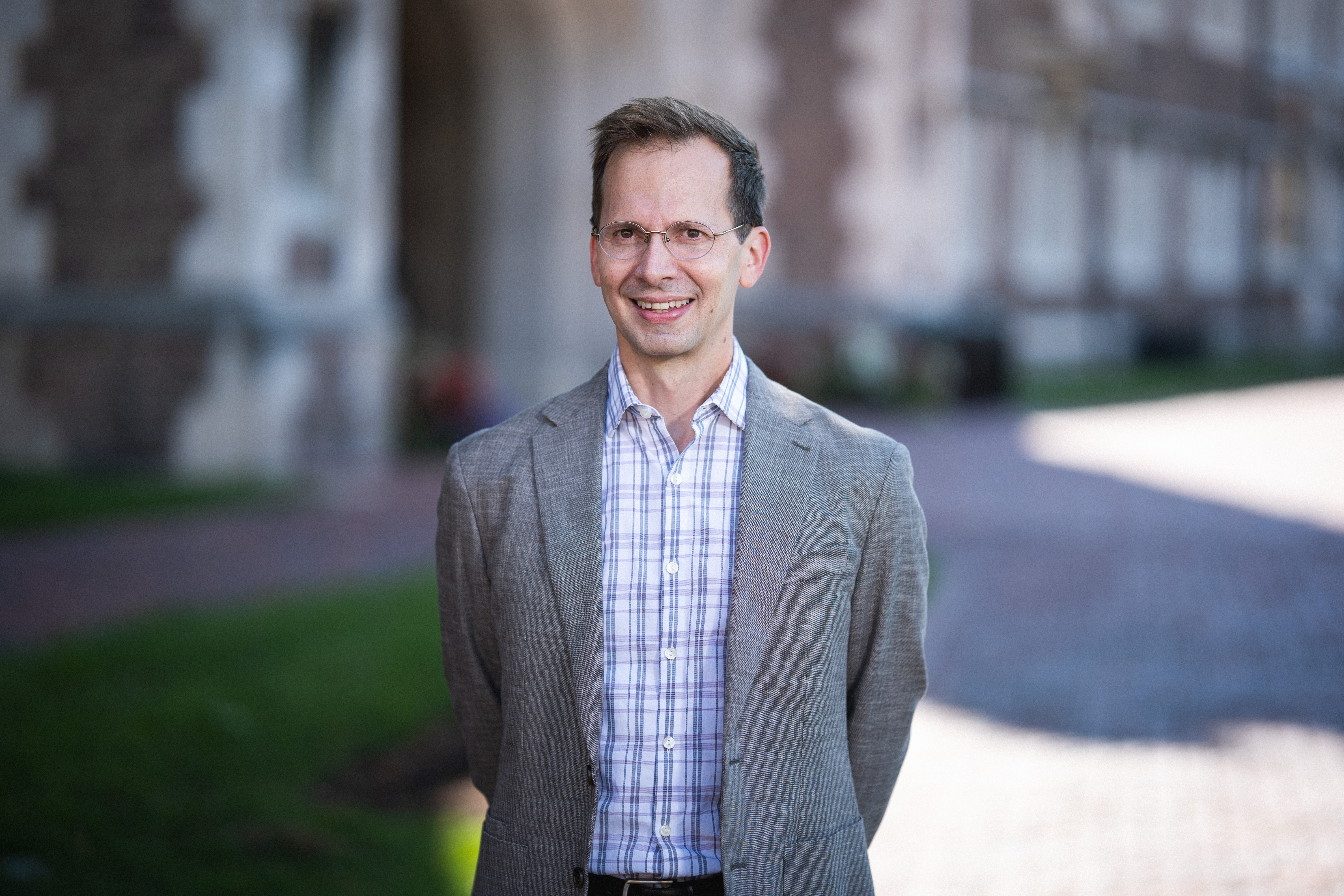William Acree, Professor of Romance Languages and Literatures, assumed the new role of Dean's Fellow for Graduate Education Initiatives last fall.
In this position, Acree is working with Sophia Hayes, interim vice dean of graduate education, to establish the Office of Graduate Studies (OGS) and focus on a range of initiatives to improve graduate education.
"I am delighted to have Professor Acree's leadership in an area that is so critical to our mission and vision," said Feng Sheng Hu, dean of Arts & Sciences. "As we launch this decade of Arts & Sciences, we have the opportunity to enhance the experience and impact of graduate education. The ideas and expertise he brings to the role are inspiring, and they will help create an even brighter future for our students and our school."

In the first few months of his role, one of Acree's immediate goals was to onboard staff for the new Office of Graduate Studies. This includes the addition of Na'Nette Ashford as director of admissions and Andy Wiegert as the director of graduate student affairs. A new Dean's Distinguished Graduate Fellowship program has also been created to support the recruitment of students who share both academic excellence and a focus on the public good, and Acree has been integral to the conception and launch of the program.
Longer-term goals, Acree said, include "everything from rethinking recruitment, to expanding access to graduate education, to developing rich professional development pathways, and working with programs as they pursue innovation."
"Billy's leadership will be key in helping us to realize a vision where graduate students of A&S are part of a thriving community of scholarship and collaboration," Hayes said. "He offers a tremendous amount of expertise, enthusiasm, and foresight regarding the future of A&S graduate education. We are so fortunate to have him as part of our team."
Acree believes having OGS within Arts & Sciences will be a "game-changer," allowing a singular focus on A&S student and program needs, and the ability to partner with faculty to pursue new cross-program collaborations, for example.
He plans to build on the many strengths currently found in Arts & Sciences: many highly-ranked programs, stellar students, diverse and impressive career outcomes, curricular innovation, a robust research infrastructure, and the mentored professional experience. He also recognizes that the strategic plan's signature initiatives offer many exciting pathways and possibilities for what's next.
"The Incubator for Transdisciplinary Futures, TRIADS, the Center for Quantum Leaps, and the Center for Literary Arts — all will engage graduate students in new ways and in novel projects, allowing for a transformed graduate experience over the next decade," Acree said. "The Office of Graduate Studies will be at the center of facilitating connections between students, programs, and these initiatives."
An enhanced focus on equity in student recruiting, admissions, and the classroom experience is another vital opportunity area that correlates with the strategic plan's goals. Acree's work as interim co-director for the Center for the Study of Race, Ethnicity & Equity offers insight into both the work that needs to be done and the partnerships that can be forged on and off campus to advance inclusivity and equity.
The work is something that he finds meaningful and critical to the future of Arts & Sciences.
"As Dean Hu has said, excellence in graduate education is synonymous with excellence in Arts & Sciences as a whole," Acree said. "Graduate students are pursuing and pushing the frontiers of knowledge. Our work to support them, and the advancement of their programs, is crucial to the A&S mission."


